International News
The Afghan conundrum

After a relatively silent phase on Afghan situation, which was overtaken by the global geo-political concerns after the start of the Russia-Ukraine war, it was once again on top of the agenda of regional and global powers in Moscow, last week.
At the Moscow Conference on Afghanistan, representatives and officials from more than 14 countries exchanged views on the current situation in Afghanistan. The meeting was hosted by Russia and participants discussed the political, economic and humanitarian situation in Afghanistan.
The 10 countries, none of which was involved in military occupation of Afghanistan, were meeting after over a year in Moscow. The participants included representatives from India, Pakistan, Russia, China, Iran, Kazakhstan, Kyrgyzstan, Tajikistan, Turkmenistan and Uzbekistan. Representatives of Qatar, the UAE, Saudi Arabia and Turkey were also present.
At the start of the conference special Russian envoy Zamir Kabulov stated that we have to provide a comprehensive solution to the Afghan economic issue. To achieve this, the main responsibility lies with the collective West. Those who drove the country for 20 years to the current deplorable state, as well as shamelessly continued economically suffocating the country by holding the frozen national assets of Afghanistan, are not ready to step in, an obvious reference to the US, which was not present at the conference.
Regional views
At the conference, the MEA’s Joint Secretary J.P. Singh, who called for joint work to ensure that the “voice” of the Afghans is not lost, represented India. We all need to work together to ensure that the voice and aspiration of Afghans is not lost and reassure them that we are standing with them at this difficult time, he said.
The Chinese special envoy on Afghan affairs, Yue Xiaoyong said that the US has shamelessly seized the $7 billion assets of Afghan Central Bank and suspended all development aid, unilaterally.
The Iran special envoy for Afghanistan, Hassan Kazimi Qomi, said that there will be a meeting of the regional foreign ministers in Tehran very soon to discuss Afghanistan’s economic woes.
Right from the beginning India’s view has been that of engaging with the Taliban. Though after making an initial foray by engaging in dialogue with the leadership in Doha, before the formation of the Islamic Emirate, it acted rather slowly afterwards. Yet, it remains firm that development and reconstruction of Afghanistan should be dealt with its regional neighbours and those countries, which in the past have played a factitious role in Afghanistan politics, should be kept away from it.
Meanwhile, the Islamic Emirate has made clear that meetings in which there is no representative from Kabul are not effective. The Afghan Foreign Ministry in a statement said that, “We want to underscore that Islamic Emirate, just as it fought against the 20-year occupation posing a direct threat to the security and stability of Afghanistan and the region, as an independent government will not allow any third country to place military facilities in Afghanistan. Similarly, we strongly urge other countries to not put their land and airspace at the disposal of other countries against Afghanistan,”
It also said that the interim Taliban regime is an “accountable government” and has taken “serious steps against antagonistic groups”.
Pakistan’s criticism
However, in an unusual move, Pakistan gave a damning assessment of the Afghan Taliban regime’s 16 months in power, saying the interim government has done little to form inclusive government, protect the rights of women and eradicate terrorist groups.
Pakistan’s special envoy for Afghanistan, Sadiq Khan, called for support for Afghans. The lack of progress, he noted, means that the critical support needed by Afghanistan to deal with the humanitarian and economic crises and other challenges has faltered.
Sadiq said the progress report of the last 16 months was mixed, while some of the worst fears, including a rapidly deteriorating security situation in Afghanistan, mass exodus of refugees and a prolonged period of instability and violence did not materialise, the interim Afghan government had also not made the kind of progress that the international community would ideally expected.
Despite assurances by the interim Afghan government, the rights of women and girls also appeared to have regressed, not progressed, according to the Pakistani envoy. He added that the footprint of terrorist organisations in Afghanistan, had yet to be fully eradicated.
He said that Pakistan has been the advocate of engaging with the Afghan Taliban government after the withdrawal of foreign forces. But the latest assessment suggests Islamabad is not happy with the interim government. Pakistan is increasingly frustrated over the Taliban’s lack of intent to eradicate threat posed by certain terror outfits to Pakistan.
But despite expressing strong reservations, Ambassador Sadiq made a passionate appeal for help to millions of Afghans, who he said, were in desperate need of urgent humanitarian support, including food, medicine and essential life supplies, before the advent of winter.
On top, he said, Afghanistan remained cut off from the international banking system and faces serious liquidity challenges. Billions of Afghan assets are frozen, thus deprived of being gainfully used for the benefit of the people of Afghanistan.
Though Pakistan wants to be a seen as an important and sincere player for the reconstruction of Afghanistan, yet there is a lot of bad blood between Pakistan and IEA. During the last 16 months, their forces have acted against each other on the border issue several times. Moreover, even the international comity does not seem ready to entrust Pakistan with any meaningful role in Afghanistan, which might be a replay of its earlier roles during the Soviet and American interference in the country.
In the given scenario, the Indian government should step up its diplomatic and outreach activities with the IEA and international players. India’s past role in Afghan affairs can’t be erased easily and now as the G20’s chair, India can definitely move forward in a resolute manner to start a meaningful and result-oriented outreach for Afghanistan.
Further IEA should be made a part of the consultative process of any future action on Afghanistan, as without their presence no one can guarantee the actions and provide legitimacy to any sincere intervention.
International News
India & Russia Are Working On Chennai-Vladivostok Eastern Maritime Corridor: PM Modi
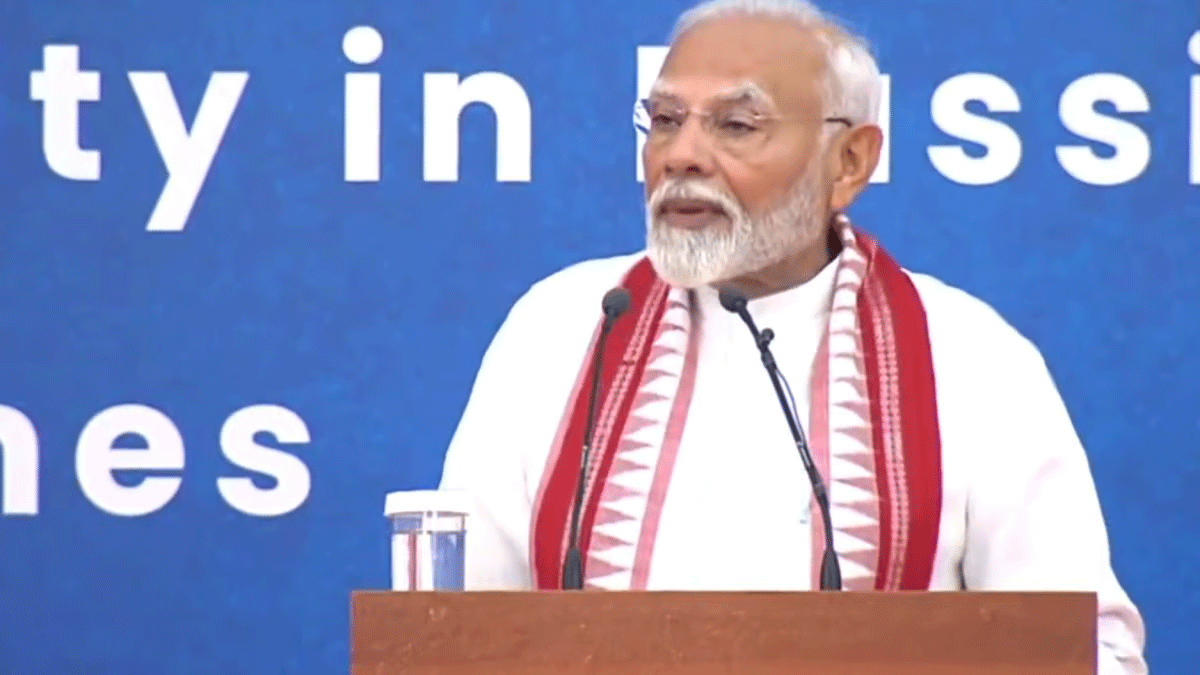
Moscow: Addressing Indians living in Russia, Prime Minister Narendra Modi on Tuesday at a community programme in Moscow said that India and Russia are working on the Chennai-Vladivostok Eastern Maritime Corridor.
PM Modi said that they are discovering each other through Ganga-Volga dialogue.
“Two years ago, the first commercial consignment also reached here from the North-South Transport Corridor… Now we are also working on Chennai-Vladivostok Eastern Maritime Corridor. Both our countries are discovering each other through Ganga Volga dialogue and civilization.”
PM Modi Recalls His Visit To Russia In The Year 2015
He recalled his visit to Russia in 2015 and said that he had then said that the 21st century would be a witness to India’s success and development. Today, the whole world believes the same and it is witnessing India’s growth.
“When I came here in 2015, I had said that the 21st century will belong to India. Experts and veterans of all fields say in unison that India is rapidly progressing.”
Prime Minister said that today, as ‘Vishwa Bandhu’, or ‘a friend to the world’. India is giving new confidence to the world.
“India’s growing capability has given the whole world a hope of stability and prosperity. India is being seen as a strong pillar of the new, emerging, multipolar, world order,” he said.
PM Modi On India
Prime Minister said that India is always the first country to provide aid whenever any country faces a crisis.
“When India talks about peace, dialogue and diplomacy, the whole world listens. Whenever the world faces a crisis, India is the first country to reach there,” he said.
External Affairs Minister S Jaishankar, Foreign Secretary Vinay Kwatra, and India’s Ambassador to Russia, Vinay Kumar also accompanied PM Modi to the event.
Earlier on Monday, Russian President Vladimir Putin and Prime Minister Narendra Modi held an informal meeting at the Novo-Ogaryovo residence of the Russian president near Moscow.
International News
Iran-Pakistan Diplomatic Tensions Soar As Islamabad Expels Iranian Ambassador Following Tehran’s Missile Attack
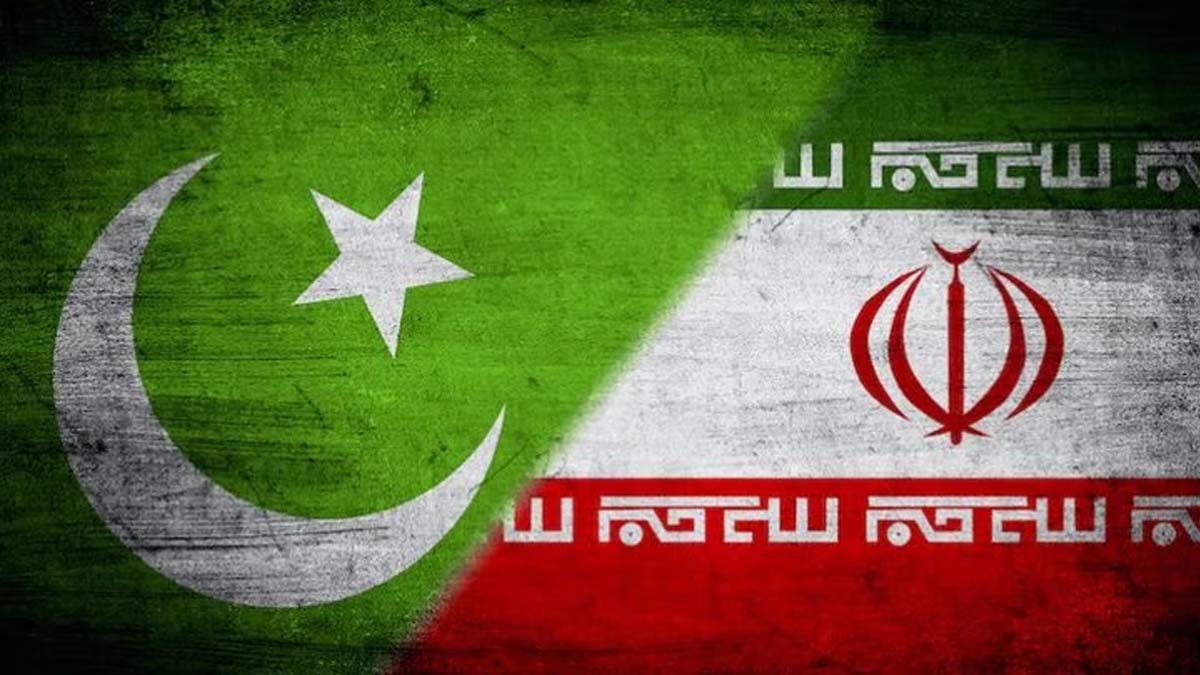
Following Iran’s launch of a barrage of missiles on Pakistan, Islamabad on Wednesday expelled the Iranian ambassador and recalled its ambassador from Tehran, Geo News reported.
“Pakistan has decided to recall its ambassador from Iran and that the Iranian Ambassador to Pakistan who is currently visiting Iran may not return for the time being,” Foreign Office spokesperson Mumtaz Zahra Baloch said while addressing a press briefing in Islamabad.
Earlier, Iran attacked the headquarters of a terrorist group opposed to Tehran with drones and missiles in Pakistan on late hours of Tuesday, Al Arabiya News reported citing Tasnim news agency.
Pakistan’s Ministry of Foreign Affairs said that the violation of Pakistan’s sovereignty is “completely unacceptable” and warned of serious consequences. It further said that Iran has taken this action despite the existence of several channels of communication between the two nations.
‘Responsibility for consequences will lie with Iran’
“Pakistan reserves the right to respond to this illegal act and the responsibility for the consequences will lie squarely with Iran,” Baloch said, adding that Islamabad had conveyed the message to the Iranian government.” The foreign ministry spokesperson said.
Formed in 2012, Jaish al-Adl, designated as a “terrorist” organisation by Iran, is a Sunni terrorist group that operates in Iran’s southeastern province of Sistan-Baluchistan, Al Arabiya News reported.
Over the years, Jaish al-Adl has launched numerous attacks on Iranian security forces. In December, Jaish al-Adl took responsibility for an attack on a police station in Sistan-Balochistan that claimed the lives of at least 11 police personnel, according to Al Arabiya News reported.
Sistan-Balochistan borders Afghanistan and Pakistan. The region has a history of clashes between Iran’s security forces and Sunni terrorists, as well as drug smugglers, Al Arabiya News reported.
Dawn news reported that last month, at least 11 Iranian police officers were killed in an attack overnight on a police station in the southeastern province of Sistan-Baluchestan. Iranian Interior Minister Ahmad Vahidi, while visiting the site, had urged Pakistan to prevent terrorist groups from establishing bases within its borders.
The attacks in Pakistan were carried out a day after Iran’s Islamic Revolutionary Guard Corps (IRGC) launched missiles into Iraq’s Kurdistan region at what it called an Israeli “spy headquarters” and at alleged ISIS-linked targets in Syria, the report said.
disaster
Tsunami Waves Hit Japan After Powerful Earthquake, Terrifying
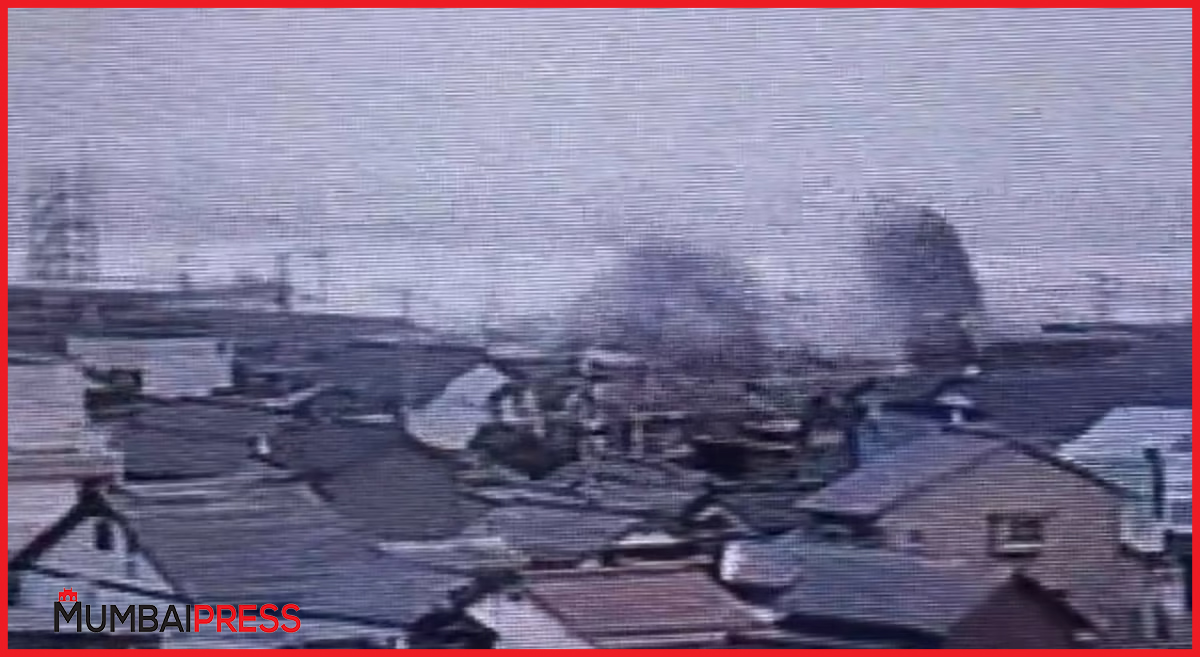
Tokyo, January 1: Tsunami waves reportedly hit coastal areas of central Japan after a powerful earthquake of magnitude 7.5 shook the country on Monday, January 1. Several videos surfaced on social media showing tsunami waves hitting Niigata and Ishikawa prefectures of Japan. At least 21 earthquakes above 4.0 magnitude struck Japan after which the country issued tsunami warning.
According to the Japan Meteorological Agency, waves as high as 1.2 meters (four feet) slammed Wajima port in Ishikawa prefecture at 4:21 pm, local time. Waves of 80 cm reached Toyama Prefecture around 4:35 pm and waves of 40 meters also reached Kashiwazaki, Niigata Prefecture, at 4:36 pm, local time. It also reached Niigata’s Sado Island at 4:10 pm, local time.
Tsunami waves hit parts of Japan
One of the videos showed waves breaking over the seawall in Ishikawa prefecture. Another video showed a powerful wave hitting a car in Niigata prefecture.
Power outages hit Japan
The powerful earthquake disrupted power supply in parts of Japan. According to reports, hundreds of residents were left without electricity. As part of preventive measures, the authorities asked people to evacuate from coastal areas of Ishikawa, Niigata, Toyama and Yamagata prefectures and move to safer locations. Traffic authorities closed major highways near epicentre of the Japan earthquake.
Tsunami warnings were also issued for Niigata, Toyama, Yamagata, Fukui and Hyogo prefectures, also along the Japan Sea Coast. Meanwhile, Russia also declared tsunami threat for parts of Sakhalin’s western coast and urges residents to evacuate to higher ground after the Japan earthquake.
-

 Crime2 years ago
Crime2 years agoClass 10 student jumps to death in Jaipur
-

 Bollywood11 months ago
Bollywood11 months agoJawan Leaked Online! Shah Rukh Khan’s Film Falls Prey To Piracy Within Hours Of Release
-

 International10 months ago
International10 months agoAsia Cup 2023: Body Blow For Sri Lanka As Lead Spinner Likely To Miss Final Against India
-
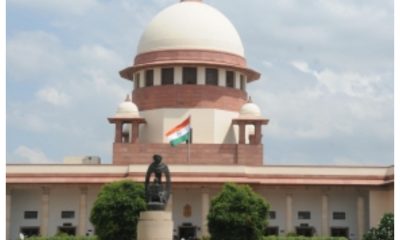
 Crime2 years ago
Crime2 years ago‘You must stop this’, SC expresses concern on hate speeches made at Dharam Sansads
-

 Bollywood11 months ago
Bollywood11 months agoWith Rs.75 Cr, Shah Rukh Khan Breaks His Own Record As Jawan Beats Pathaan On Day 1 At Box Office
-
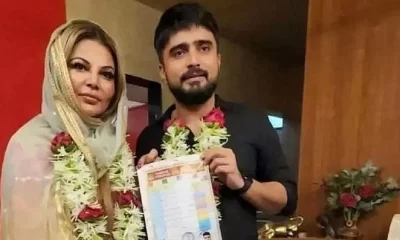
 Entertainment2 years ago
Entertainment2 years agoRakhi Sawant changes name to Fatima after her wedding with Adil Khan Durrani – Check viral Nikah pics
-

 Bollywood2 years ago
Bollywood2 years agoAnushka Sharma starts shooting for her ‘Chakda Xpress’
-

 Bollywood11 months ago
Bollywood11 months agoJawan On OTT: Shah Rukh Khan’s Film Sold To Netflix For A Whopping Rs.250 Crore












